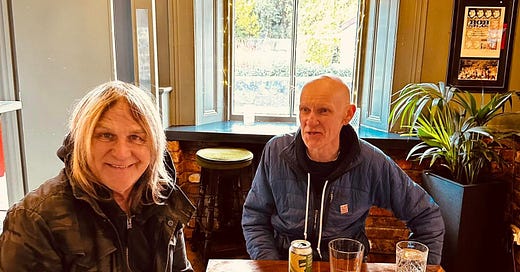Thick as Thieves, Part 2
You can't choose your family, but you can certainly choose your friends.
If you missed Part 1 of this post, you may wish to read it now…
before you get stuck in to Part 2. Please also consider reading these longer posts on a laptop or desktop, as they may be too long for a single e-mail.





